POLITICS
13.02.21 14:10

"Busy"! This word, along with cars loaded with the looted property of Georgians and trucks of looters, was the first thing that caught the eye in Sukhumi after the seizure of the city by separatists in the fall of 1993.
Here is footage of Sukhumi plundered by marauders in the fall of 1993 - and here the inscriptions "busy" are clearly visible:
All eyewitnesses of those events note precisely the massive seizure of homes, houses, and apartments of killed or expelled Georgians by looters. So, for example, the article "Abkhazian Apocalypse", published in "Izvestia" on October 12, 1993, 2 weeks after the seizure of Sukhumi by the separatists, partly described what was happening in the city:
“Tractors with trailers, KAMAZ trucks, and cars, filled to the brim with furniture, electronics, and various household belongings, stretched towards the line. "Refugees?" - asked the paratrooper. - "Marauders" ...
“Busy, busy... "- this word is printed on almost every house. And next to it is an Abkhaz surname or any other, but not a Georgian one. “On the Bzybskoe highway,” the soldiers said, “there were many Georgian families ...” It was evident that the conquerors had already settled in Georgian houses. They knocked dust out of other people's pillows, washed in other people's troughs, ate from other people's plates. That the stolen "Zhiguli" is there - a huge street, with all its houses, was in the power of the conquerors."
And here are the recollections of Yeshim Atryshba, shocked by what was happening, an Abkhaz woman from Turkey, who had been in Sukhumi, “cleansed” of Georgians.
“You could also hear single shots. We met a lot of cars beyond Gumista. They were heading to Sukhumi. I think they are really Georgians? But no, they were Abkhazians. The man in green shouted to them: "Wait, the war is not over yet." But people did not hear him. They went there to seize the remaining property in Sukhumi, ”this woman describes the“ invasion ”of marauders on the city.
Again, the multitude of the inscriptions "Busy" simply amazed the woman, and she did not even initially know what this inscription meant:
“In Sukhumi itself, on houses and apartments, we came across the words:“ Busy, Busy, Busy ”. I didn’t speak Russian then and didn’t understand. I ask my friend: "Saida, what is this big name, Busy?" Saida laughed and explained to me the meaning of these words. And then I got really scared. When I saw this picture, I lost heart. It was only then that I realized that the most difficult times would come after the war, "Ieshym Atryshba recalled.
The question arises - the Abkhaz always, throughout their entire history up to the separatist war of 1992-1993. distinguished by the nobility. And this is not surprising, because they had a history and common values in common with their Georgian brothers and with other original Caucasian peoples. But here the people "seem to have been replaced."
And for a long time, there was a question - who introduced the "fashion" for such looting? Where and when did this ominous "Busy" sign first appear in the Caucasus?
Recently it became obvious who introduced this vile "fashion". Although it was possible to guess earlier. Indeed, as part of the Armenian battalion named after. Baghramyan then, in the fall of 1993, when his militants committed atrocities and marauded in the streets of Sukhumi, among them were militants who had already “distinguished themselves” by atrocities and looting on Azerbaijani soil, in Karabakh. The same inscriptions “Busy”, which were everywhere found on the houses of killed and expelled Georgians in Sukhumi in the terrible October 1993, earlier in May 1992 were also everywhere in the Azerbaijani city of Shusha, captured by Armenian armed formations, almost a year and a half before the fall of Sukhumi...
The most interesting thing is that for more than 28 years some inscriptions “occupied” in Shusha have not been erased by invaders and marauders. This is what Azerbaijani journalist Ali Hajizadeh writes on his Facebook page, citing relevant photographs.
“When I was in Shusha, I did not notice these inscriptions on the doors of houses, and perhaps I did, but did not pay attention. But recently my friend, architect Parviz Polukhzadeh visited Shusha and made these iconic and very valuable photographs from the point of view of modern history. These inscriptions “occupied” and the names that disfigured the entrance doors were left by the Armenians after the capture of Shusha. So they meant that this or that house, from which the Azerbaijanis were expelled, is now occupied, and belongs to such and such an Armenian. A similar situation was observed in Abkhazia when Armenians and Abkhaz occupied the houses of the exiled Georgians. Another fact is interesting here, since 1992, they did not bother to paint, refresh the doors, these inscriptions remained, apparently, they knew that the owners would return and paint everything themselves and put them in order ... "
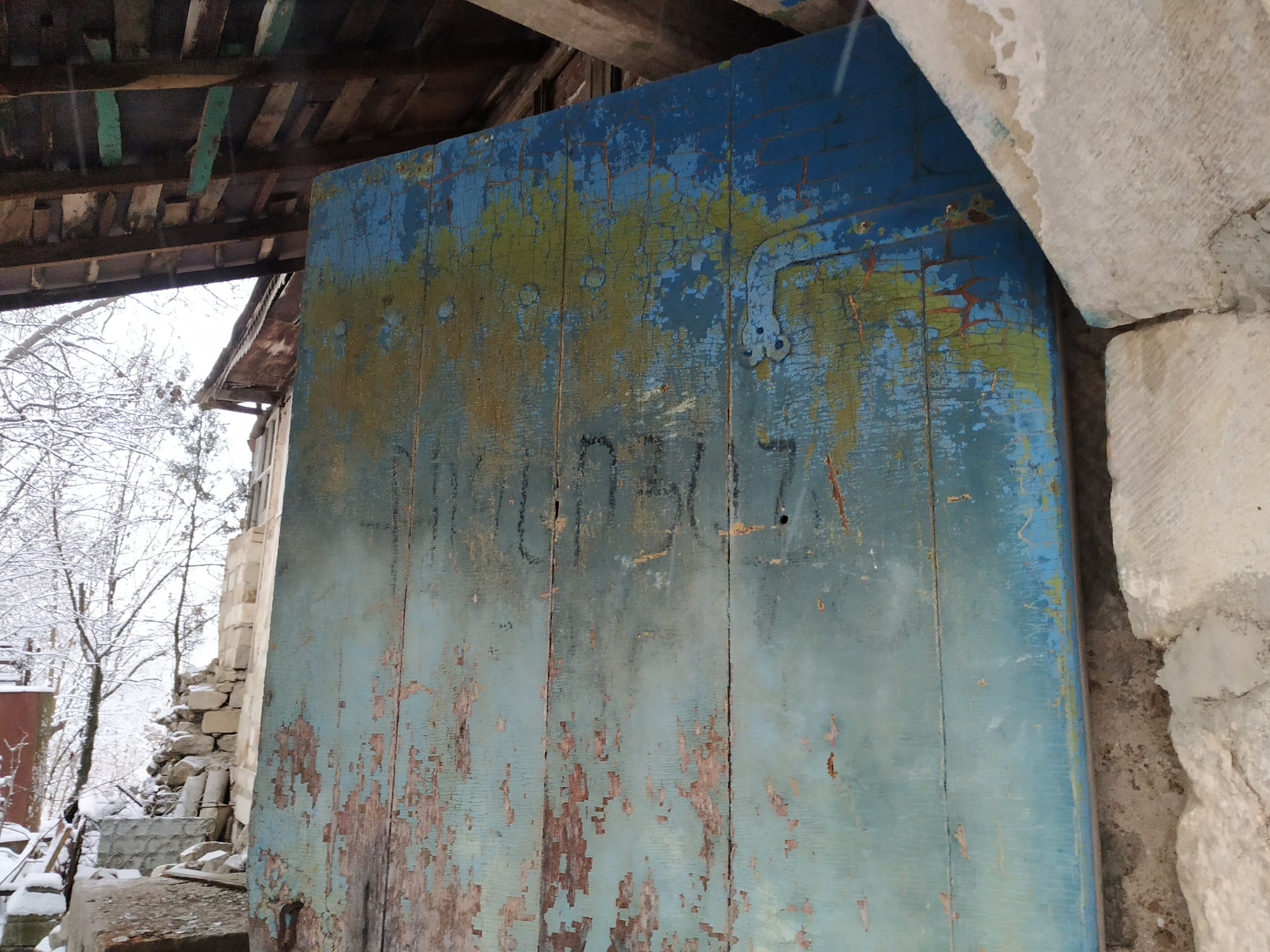
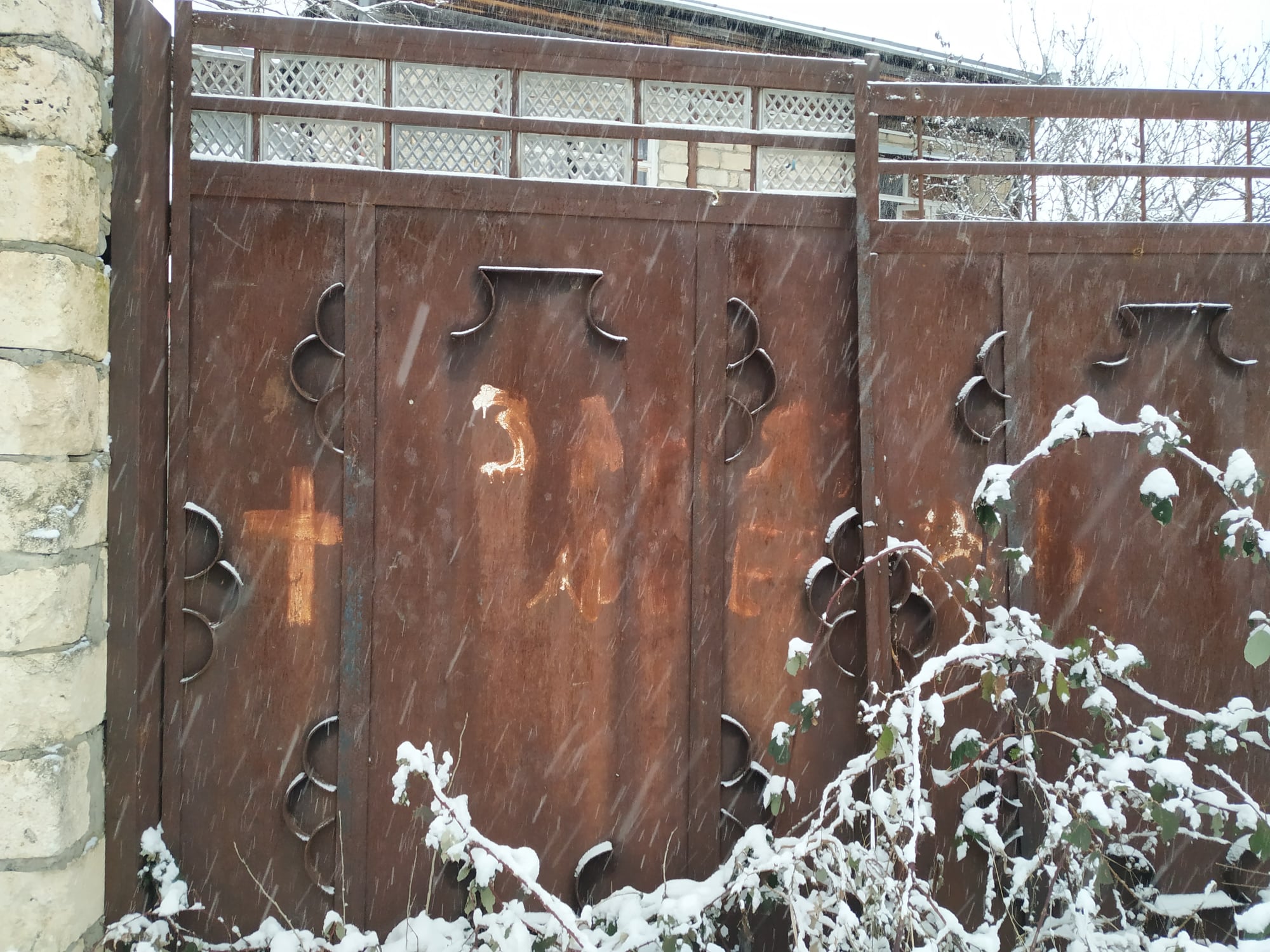
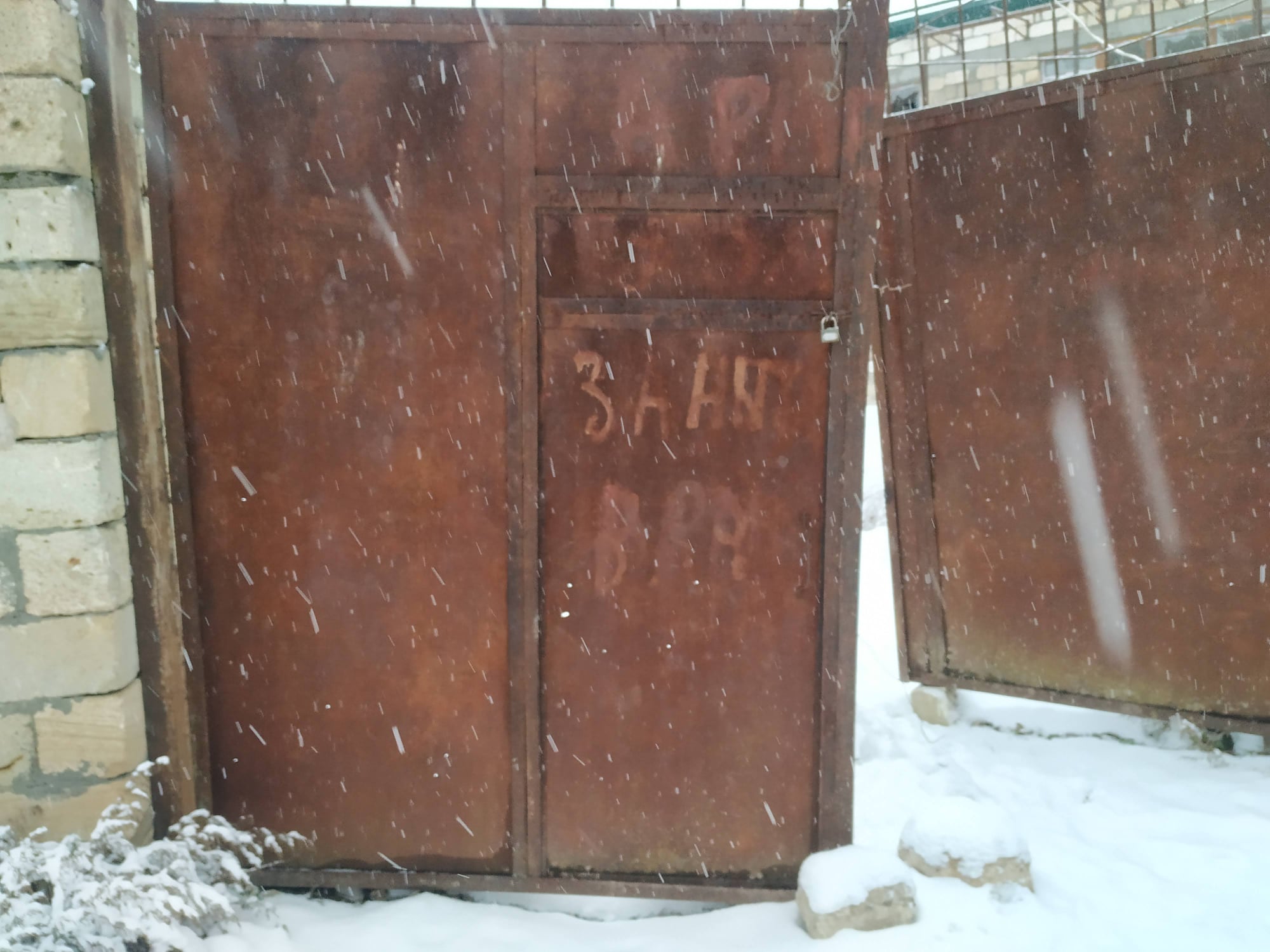
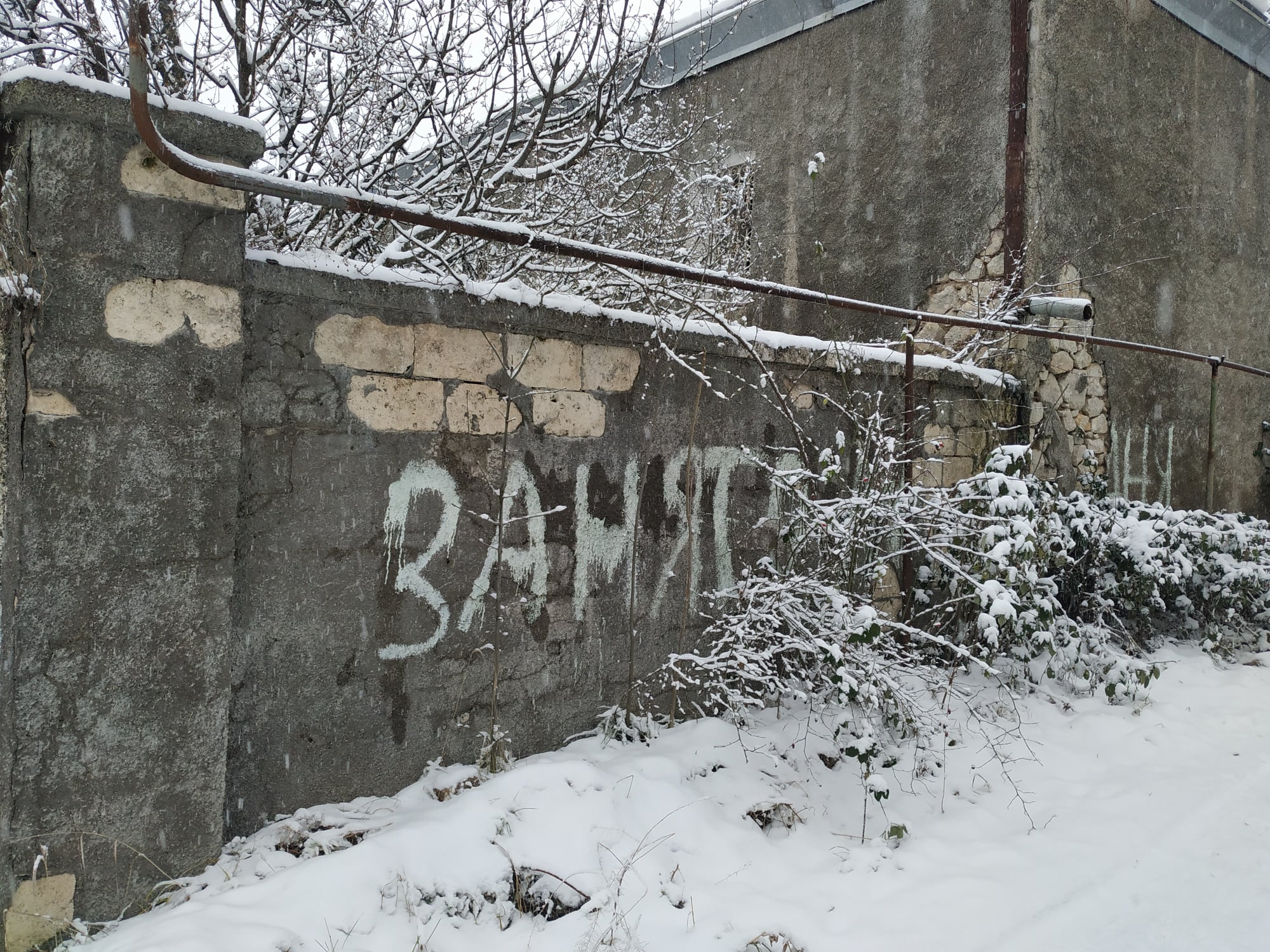

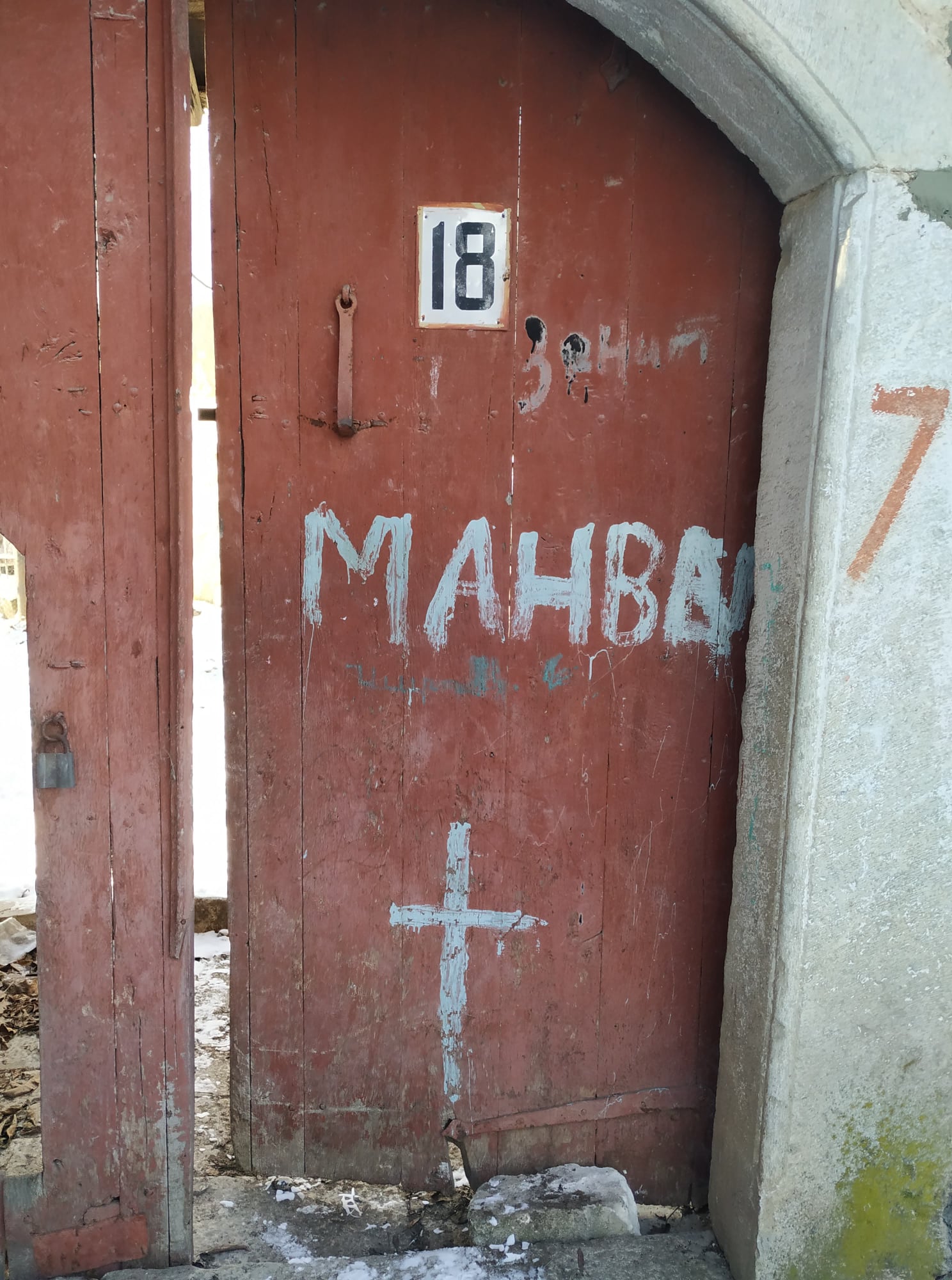
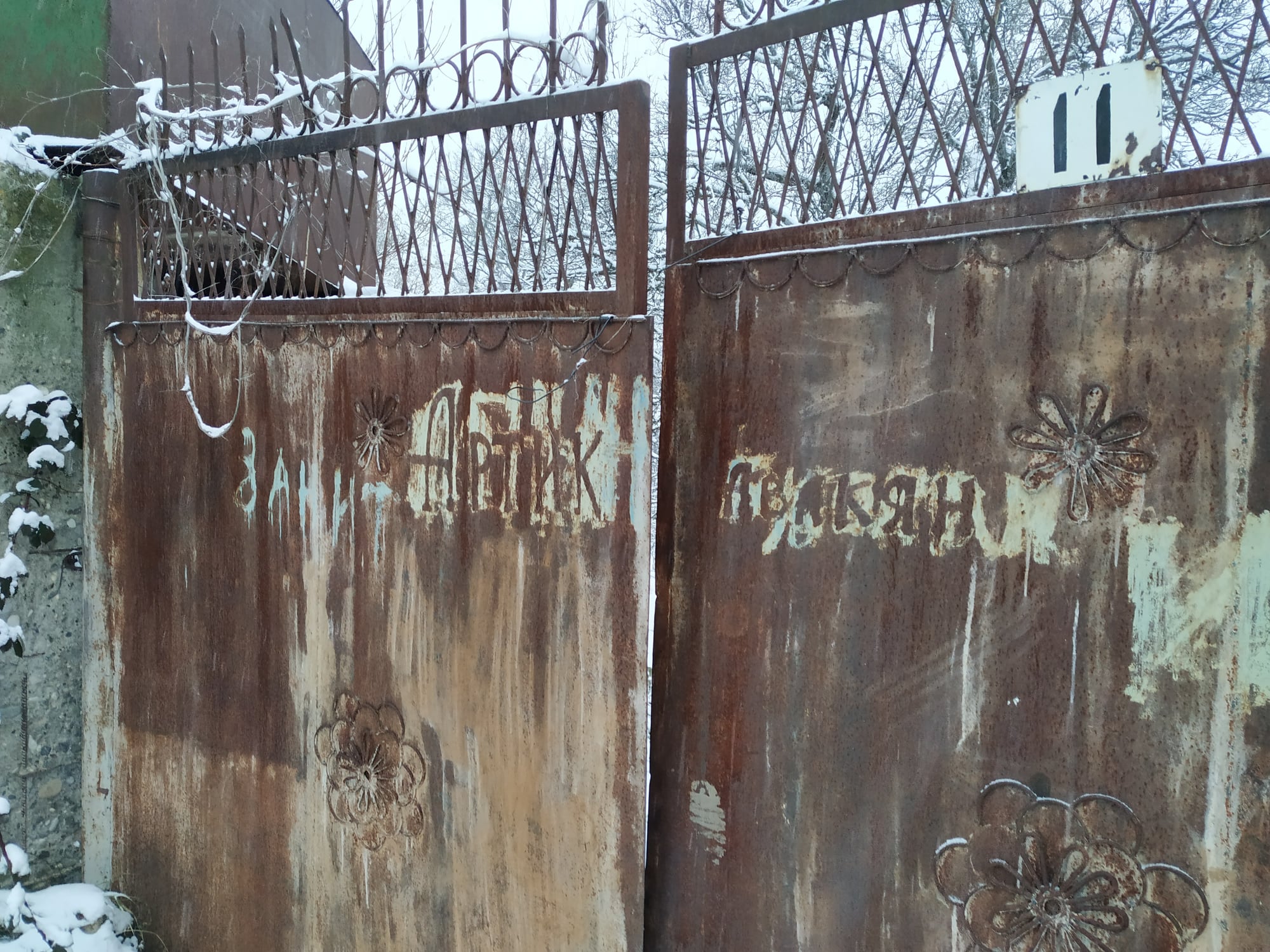
Photo from the city of Shusha is from here https://www.facebook.com/AHajizade/posts/4431935306822518
Photos from the liberated city of Shusha with the words “Busy” cannot be immediately distinguished from the photos from Sukhumi in the fall of 1993 with the same inscriptions. And the surnames both there and there were often the same - Armenian.
With the onset of the tourist boom from Russia, marauders in separatist Sukhumi mostly washed these inscriptions. After all, the looters later lied to tourists that they “built themselves” the captured “trophy” house.
But in Shusha, there was no influx of tourists. Therefore, here some looters and criminals were not even particularly worried about hiding the evidence of their crimes in 1992. Fortunately, Shusha was quickly liberated from the invaders, and therefore they did not have time to burn down the “trophy” of other people's houses, just as they did in Kelbajar.
KavkazPlus
Read: 82
Write comment
(In their comments, readers should avoid expressing religious, racial and national discrimination, not use offensive and derogatory expressions, as well as appeals that are contrary to the law)
News feed
-
Georgian PM, Turkish President to discuss issues of strategic interests, FM Darchiashvili says
18:0016.05.24
-
MIA arrests two for property damage in group
17:3816.05.24
-
Georgian PM pays tribute to the grave of Mustafa Kemal Atatürk
17:0016.05.24
-
16:2616.05.24
-
The National Bank sold 60,000,000 USD at the foreign exchange auction
15:4016.05.24
-
Roman Gotsiridze: The exchange rate of the GEL is unmanageable
15:0016.05.24
-
Tbilisi Mayor: Georgian people to decide change of government through democratic elections
14:2116.05.24
-
The Parliament has completed the public review of the draft law prepared against LGBT propaganda
13:4916.05.24
-
Is Georgia between 'Euromaidan' and 'green men'?
13:4516.05.24
-
Irakli Kobakhidze went on an official visit to the Republic of Turkey
13:0016.05.24
-
12:1316.05.24
-
11:3716.05.24
-
10:5516.05.24
-
Charles Michel reports on the telephone conversation with Salome Zurabishvili and Irakli Kobakhidze
10:0016.05.24
-
Opposition MPs meet FMs of Iceland, Latvia, Lithuania, Estonia
18:0015.05.24
-
17:3715.05.24
-
16:4915.05.24
-
16:0715.05.24
-
15:3515.05.24
-
Separatist South Ossetia may be abolished due to total absence of people
14:5315.05.24
-
14:0015.05.24
-
NATO Spokesperson: We urge Georgia to change course and to respect the right to peaceful protest
13:1515.05.24
-
Estonian Foreign Minister: This law is a symbol of the choice between Russia and the European Union
12:3015.05.24
-
11:3915.05.24
-
11:0815.05.24
-
10:3515.05.24
-
Will France recognise Georgia's territorial integrity?
19:2414.05.24
-
In January-April, Georgia bought 1.1 billion cubic meters of gas from Azerbaijan
18:0014.05.24
-
17:3014.05.24
-
17:0014.05.24
-
Charles Michel: I am disappointed with what is happening in Georgia
16:3714.05.24
-
16:0014.05.24
-
15:1114.05.24
-
Levan Khabeishvili: The reputation of this government will never be restored
14:2914.05.24
-
13:4714.05.24
-
PM expects James O’Brien's visit to cover visa liberalization, free trade agreement, direct flights
13:0614.05.24


